*See Endnotes for typography key/citations*
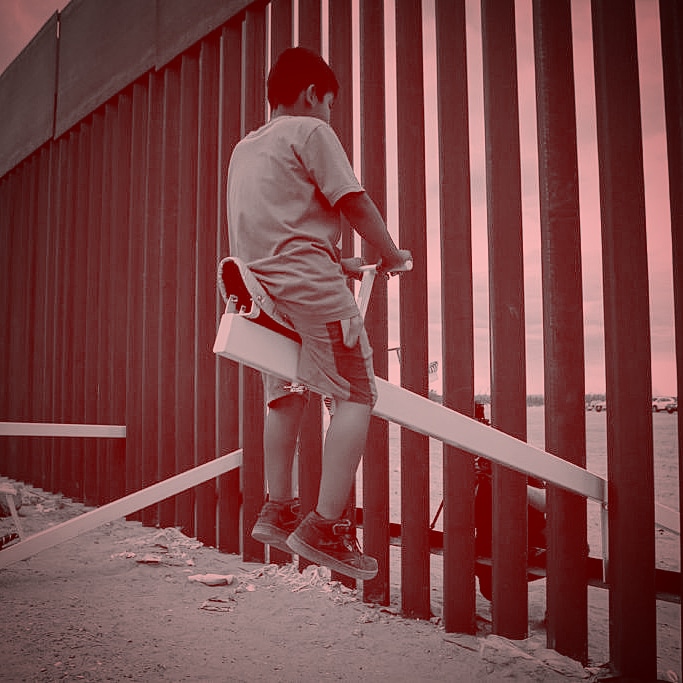
Exhibit A.
There is no Great Wall of China. The name stands for a system of walls, erected over 2000 years by almost every dynasty that ruled the Middle Kingdom. The sections known today extend for more than 35,000 miles all told. Each one reflects the political and military circumstances of the time when it was built: the extent of the empire and the geographical location of its capital, the direction from which incursions by the horse-riding nomads from the north were feared, and the expansionist aims of the reigning emperor.
– Daniel Scwhartz, The Great Wall of China
I read, a few days ago, that the man who ordered the almost infinite wall of China to be built was that First Emperor … who likewise ordered all books antedating him to be burned. That these two vast undertakings – the five or six hundred leagues of stone thrown up against the barbarians, and the rigorous abolition of history, that is, of the past – should originate with the same person and be in some way his attributes, inexplicably pleased and, at the same time, disturbed me. “Well, you know, I love to read. Actually, I’m looking at a book, I’m reading a book, I’m trying to get started.” Burning books and building fortifications are occupations common among princes; what was singular in the case of [The First Emperor] was the scale on which he operated.
“I like a lot of books. I like reading books. I don’t have the time to read very much now in terms of the books, but I like reading them.”
Walling off an orchard or a garden is common enough, but not walling off an empire. “I will build a great, great wall on our southern border. And I will have Mexico pay for that wall.” Naturally, with this method many large gaps arose, which were filled in only gradually and slowly, many of them not until after it had already been reported that the building of the wall was complete. “A business executive warning against China said, I’d like to send you a report. He said, I’d love to be able to send you – oh boy, he’s got a lengthy report, hundreds of pages. . . . I said, Do me a favor: Don’t send me a report. Send me, like, three pages.” In fact, there are said to be gaps which have never been built in at all, although that’s merely an assertion which probably belongs among the many legends which have arisen about the structure and which, for individual people at least, are impossible to prove with their own eyes and according to their own standards, because the structure is so immense.
(Something there is that doesn’t love a wall.)
“I’ve read hundreds of books about China over the decades. I know the Chinese. I’ve made a lot of money with the Chinese. I understand the Chinese mind.”
It may also be supposed that the erection of the wall and the burning of the books were not simultaneous acts. This would, according to the order we preferred, give us the image of a king who began by destroying but then resigned himself to preserving, or of a disillusioned king who undertook to destroy what he had previously defended. “Our country is in serious trouble. We don’t have victories anymore. We used to have victories, but we don’t have them. When was the last time anybody saw us beating, let’s say China, in a trade deal? I beat China all the time. All the time.”
As I looked out a moment ago from the Reichstag, that embodiment of German unity, I noticed words crudely spray-painted upon the wall, perhaps by a young Berliner: THIS WALL WILL FALL, BELIEFS BECOME REALITY… Yes, across Europe, this wall will fall. For it cannot withstand faith; it cannot withstand truth. The wall cannot withstand freedom.
“We’re going to do a wall; we’re going to have a big, fat beautiful door on the wall; we’re going to have people come in, but they’re going to come in legally.”
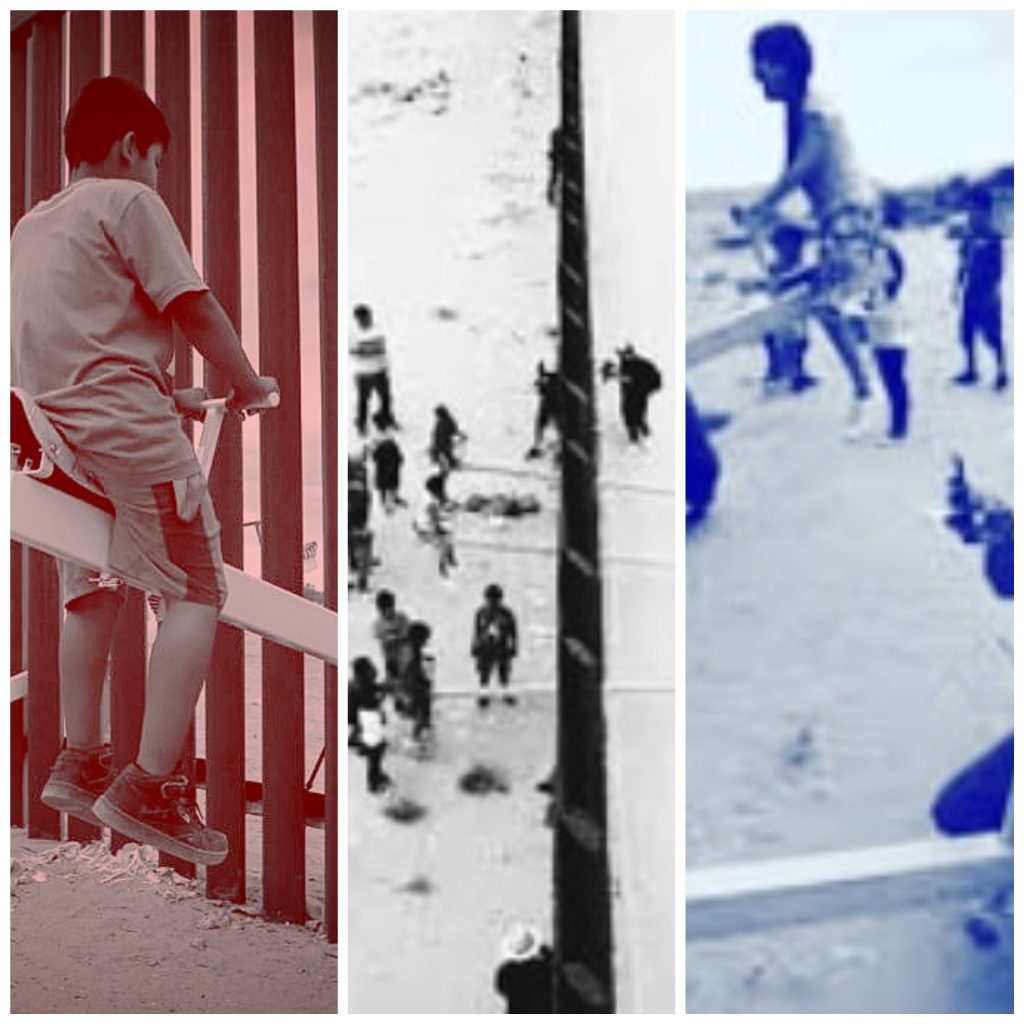
Exhibit B.
…As he reached the end of the alley, he stopped, drew into the shadow of a doorway and looked at his watch.
Two minutes, he whispered.
She said nothing. She was staring straight ahead towards the wall, and the black ruins rising behind it.
Two minutes, Leamas repeated.
Before them was a strip of thirty yards. It followed the wall in both directions. Perhaps seventy yards to their right was a watch tower; the beam of its searchlight played along the strip. The thin rain hung in the air, so that the light from the arclamps was sallow and chalky, screening the world beyond. There was no one to be seen; not a sound. An empty stage.
The watch tower’s searchlight began feeling its way along the wall towards them, hesitant; each time it rested they could see the separate bricks and the careless lines of mortar hastily put on. As they watched, the beam stopped immediately in front of them. Leamas looked at his watch.
Ready? he asked.
She nodded.
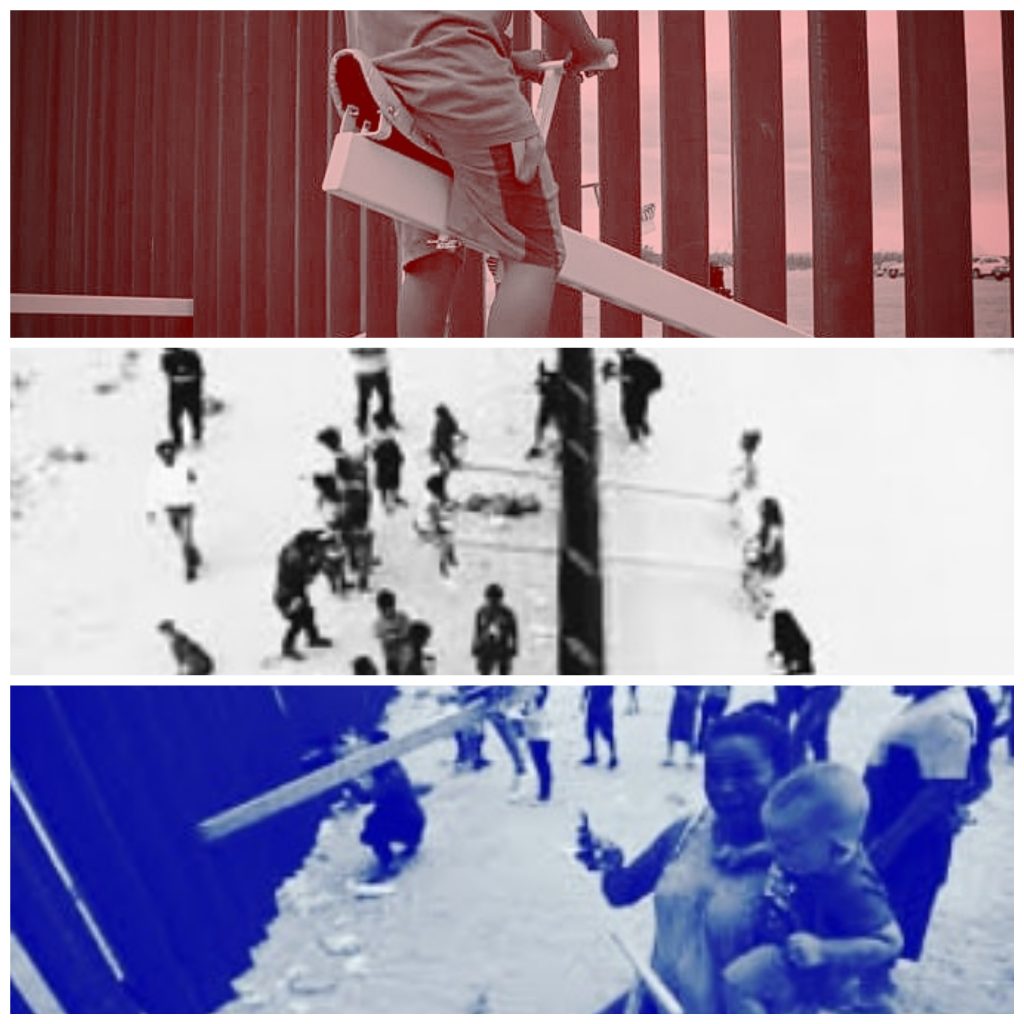
Exhibit C.
Often the Wall is more important than what it encloses… So the Great Wall of China is first and foremost an idea. It stands for a world view which distinguishes between Us and Them… As a defensive bulwark against dangers from the outside, the Wall was never all that effective, but it was a formidable instrument of control over the population inside and over movements of the first visitors from the West – missionaries and traders.
– Daniel Scwartz, The Great Wall of China
“Mexico is not going to build it, we’re going to build it. And it’s going to be a serious wall. It’s not going to be a toy wall like we have right now where cars and trucks drive over it loaded up with drugs and they sell the drugs in our country and then they go back and, you know, we get the drugs, they get the cash, okay, and that’s not going to happen.” Perhaps the burning of the libraries and the construction of the wall are undertakings that secretly cancel themselves. The firm wall, which at this and in every moment casts its system of shadows over lands I shall never see, is the shadow of a Caesar who ordered the most reverent of nations to burn its past; it is likely that, aside from the conjectures it permits, this idea itself moves us. “They don’t know it yet, but they’re going to pay for it. And they’re great people and great leaders but they’re going to pay for the wall. On day one, we will begin working on an impenetrable, physical, tall, powerful, beautiful southern border wall.”
I imagine the leadership has always existed, along with the decision to construct the wall as well. Innocent northern people believed they were the cause; the admirable innocent emperor believed he had given orders for it. We who were builders of the wall know otherwise and are silent.
“I know words. I have the best words.”
…According to historians, [The First Emperor] forbade the mention of death and searched for the elixir of immortality and shut himself up in a symbolic palace that had as many rooms as there are days in the year; this suggests that the wall in space and the conflagration in time were magical barriers designed to hold back death.
“It really doesn’t matter what they write as long as you’ve got a young and beautiful piece of ass.”
That’s exactly how our people look at the emperor, hopelessly and full of hope. They don’t know which emperor is on the throne, and there are even doubts about the name of the dynasty. Music, states of happiness, mythology, faces scored by time, certain twilights, certain places, all want to tell us something, or told us something we should not have missed, or are about to tell us something. This imminence of a revelation that does not take place is, perhaps, the esthetic fact.
“And I’ll give you an example: As horrible as it sounds, when they throw the large sacks of drugs over, and if you have people on the other side of the wall, you don’t see them — they hit you on the head with 60 pounds of stuff? It’s over. As crazy as that sounds, you need transparency through that wall…”
We welcome change and openness; for we believe that freedom and security go together, that the advance of human liberty can only strengthen the cause of world peace. There is one sign the Soviets can make that would be unmistakable, that would advance dramatically the cause of freedom and peace. General Secretary Gorbachev, if you seek peace, if you seek prosperity for the Soviet Union and Eastern Europe, if you seek liberalization, come here to this gate. Mr. Gorbachev, open this gate. Mr. Gorbachev…Mr. Gorbachev, tear down this wall!
That’s how ready people are among us to obliterate the present.
“No, not joking, no… There is a chance that we can do a solar wall. We have major companies looking at that. Look, there’s no better place for solar than the Mexico border — the southern border. And there is a very good chance we can do a solar wall, which would actually look good. But there is a very good chance we could do a solar wall.”
The people will never know anything about these struggles and sufferings. Like those who have come too late, like strangers to the city, they stand at the end of the thickly populated side alleyways, quietly living off the provisions they have brought with them, while far off in the market place right in the middle foreground the execution of their master is taking place.
(Something there is that doesn’t love a wall.)
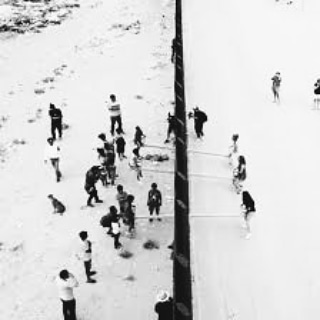
Exhibit D.
Something is going to happen to us than I can’t understand, he said.
There was a strange smell about Tom. It seemed to me I was more sensitive than usual to odors.
I grinned. You’ll understand in a while.
It isn’t clear, he said obstinately. I want to be brave but first I have to know. . . .Listen, they’re going to take us into the courtyard. Good. They’re going to stand up in front of us. How many?
l don’t know. Five or eight. Not more.
All right. There’ll be eight. Someone’ll holler aim! and I’ll see eight rifles looking at me. I’ll think how I’d like to get inside the wall, I’ll push against it with my back. . . . with every ounce of strength I have, but the wall will stay, like in a nightmare…

Exhibit E.
In order to reconstruct the idea of the ‘Great Wall’ photographically, I had to piece walls together. If one dynasty’s wall broke off, a substantial piece from another era served as a continuation, assuming that one preexisted in the region in question. The shortcomings of the photographic medium – standpoint, angle of vision – in illustrating solid fragments led to a technique of quasi-cinematic panning … Pairing pictures in that way, and having sections from two views overlap, was a device to make visible the Wall’s inherent principle: its repetition.
– Daniel Scwartz, The Great Wall of China
(Something there is that doesn’t love a wall.)
If one wanted to conclude from such phenomena that we basically have no emperor at all, one would not be far from the truth. “One of the things with the wall is you need transparency. You have to be able to see through it. In other words, if you can’t see through that wall — so it could be a steel wall with openings, but you have to have openings because you have to see what’s on the other side of the wall.” It’s all the more striking that this very weakness appears to be one of the most important ways of unifying our people.
Mr. Gorbachev, tear down this wall!
“Is there a brick wall getting in your way? Fine. That happens. But you have a choice. You can walk away from the wall. You can go over the wall. You can go under the wall. You can go around the wall. You can also obliterate the wall. In other words, don’t let anything get in your way. Get a balance, and then let the positive outdistance the negative.”
Mr. Gorbachev, tear down this wall!
Try with all your powers to understand the orders of the leadership, but only up to a certain limit—then stop thinking about them. Its virtue may reside in its opposition, on an enormous scale, between constructing and destroying.
(Something there is that doesn’t love a wall.)
“I will build a great wall – and nobody builds walls better than me, believe me – and I’ll build them very inexpensively. I will build a great, great wall on our southern border, and I will make Mexico pay for that wall. Mark my words.”
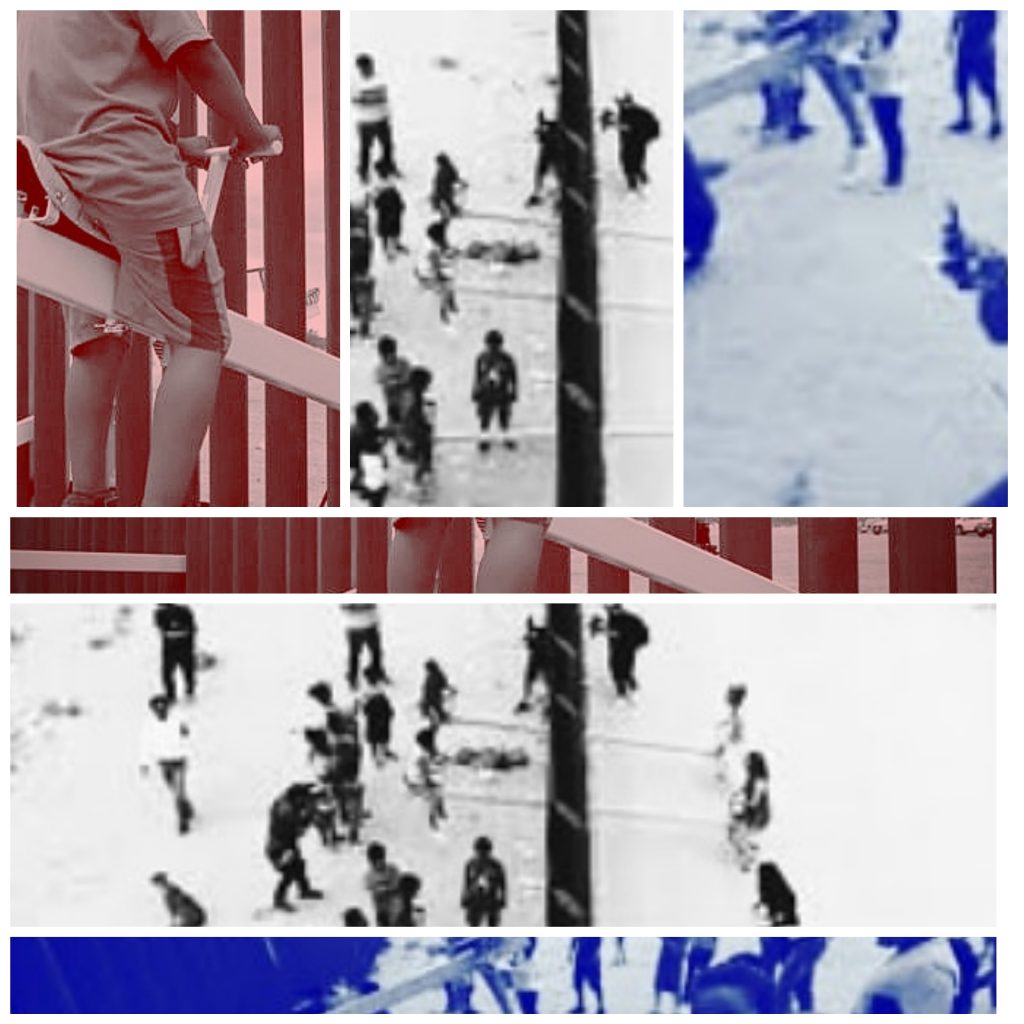
Endnotes:
Epigraphs – The Great Wall of China, photography and introduction by Daniel Schwartz
Regular text – from The Great Wall of China, by Franz Kafka
Boldface – from The Wall And The Books, by Jorge Luis Borges
“Quotes” – The 45th President of The United States, various sources at various times
Italics – Ex. no. 2 from The Spy Who Came In From The Cold by John Le Carre; Ex. no. 4 from The Wall, a short story by Jean
Paul Sartre
(Parentheses) – from The Mending Wall By Robert FrosStrikethrough – from a speech given at The Berlin Wall in 1987 by the 40th President of The United States
